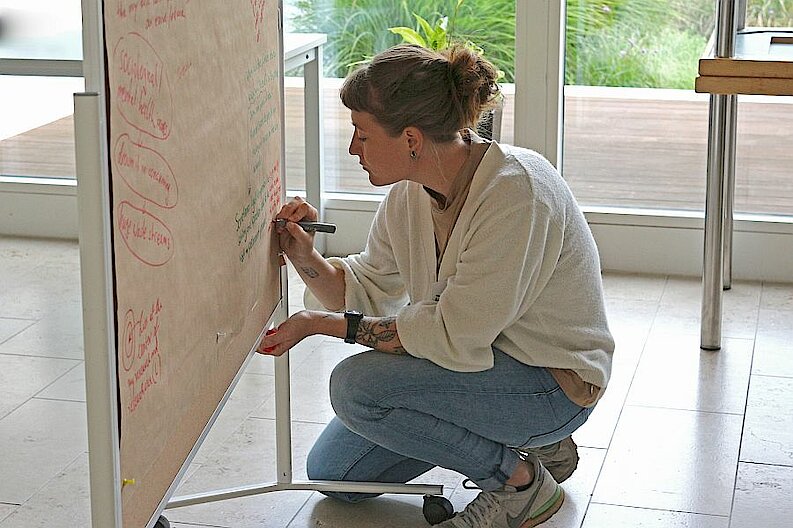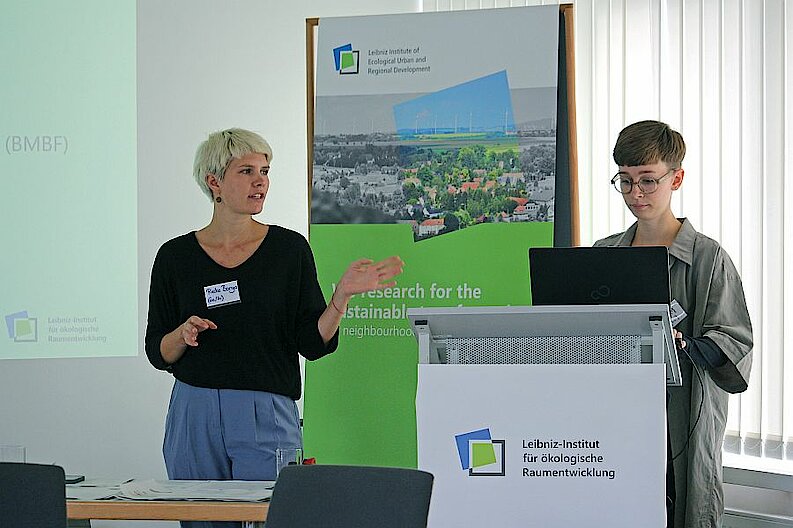The project "GiB_Raum – Gender Aspects in the View of Spatial Sustainability and Transformation Research" started at the IOER with a substantive exchange on topics of social justice, gender relations and socio-ecological transformations. Together with its lead partner, the ARL – Academy for Territorial Development in the Leibniz Association, the IOER is developing a strategy for systematically and permanently integrating gender aspects into the research structures and processes of both institutions.
Gender aspects in spatial research - project launched at the IOER
Are different social groups affected differently by heat in the city and if so, why is that? What does the use of green spaces have to do with gender-specific division of labour? Whose interests and needs are taken into account more, whose less, in sustainable urban development? – Gender perspectives are becoming increasingly important in spatial sustainability and transformation research. However, they have rarely been structurally anchored in research institutions. Even though gender functions can serve as examples to make injustices in spatial transformations visible.
The joint project GiB_Raum addresses this structural gap. The aim is to systematically integrate gender aspects into the research practices of both institutions in the long term. To this end, the project team will initially develop a concept for the implementation of this integration service by January 2023. The implementation phase will run for five years. The project is funded by the Federal Ministry of Education and Research (BMBF).
The project is intended to serve as a model and to ensure that gender aspects and other aspects of inequality are also taken into account in other research institutions of the Leibniz Association in the future. To this end, the project partners plan to network with other institutions and to transfer knowledge intensively.
In addition to gender, the IOER focuses on other categories of social inequality. This is because there are often interdependencies, for example between gender, race, social origin or age. They are important when it comes to ensuring more justice and social equality in questions of spatial development and in the transformation to sustainable economies and lifestyles.
The project team used the kick-off workshop at the IOER to sensitise interested colleagues to the topic of gender and gender justice and to stimulate their curiosity for further discussions on the topic. The implementation concept that the researchers are now developing will determine, among other things, how gender-related aspects can be incorporated into the entire research process at the IOER in the future, both in terms of content and structure.
For the IOER, the project is an important catalyst. Since 2013, continuous efforts have been made at the Institute to draw attention to the importance of gender-differentiated research as well as to anchor gender aspects in the research of the Institute. With the help of the joint project, these steps can now be deepened, differentiated and consolidated with a regard to spatial sustainability and transformation research.
Link to the website of the project
Scientific contact at the IOER
Prof. Dr. Marc Wolfram (project management), e-mail: M.Wolfram@ioer.de
Rieke Borges (project coordination), e-mail: R.Borges@ioer.de



![[Translate to English:] Leibniz Gemeinschaft](/fileadmin/user_upload/ioer_de/img/logo-leibniz-gemeinschaft.svg)
![[Translate to English:] Dresden concept](/fileadmin/_processed_/2/1/csm_logo-dresden-concept_430c661ad7.png)

